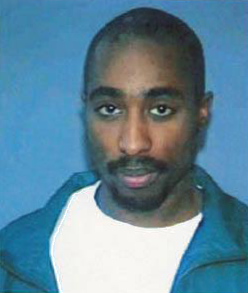
Stage Name: Tupac Shakur
Birth Name: Tupac Amaru Shakur
Place of Birth: East Harlem, New York City, New York, USA.
Date of Birth: June 16, 1971
Died: September 13, 1996 (25 years)
Years Lived: 1971 - 1996
Early Life and Background
Birth and Family
Tupac Amaru Shakur, known as 2Pac, was born on June 16, 1971, in East Harlem, New York City, New York. He was born to Alice Faye Williams (Afeni Shakur) and Billy Garland, both active members of the Black Panther Party. He had a half-sister, Sekyiwa Shakur, and an older stepbrother, Mopreme Shakur.
Childhood
Tupac’s childhood was marked by poverty and frequent moves. His mother struggled with substance abuse, and Tupac had a turbulent upbringing. Despite these challenges, he found solace in the arts, particularly poetry and acting. He attended the Baltimore School for the Arts, where he studied acting, poetry, jazz, and ballet.
Education
Tupac attended the Baltimore School for the Arts, where he befriended actress Jada Pinkett. His time there was influential in shaping his artistic talents. After moving to California, he attended Tamalpais High School in Mill Valley, where he continued to develop his passion for performance and music.
Musical Beginnings
First Encounters with Music
Tupac’s first significant encounter with music came when he joined the hip-hop group Digital Underground as a backup dancer and rapper. He appeared on their 1991 album Sons of the P, marking his entry into the music industry.
Early Bands or Groups
Before joining Digital Underground, Tupac was part of several local rap groups, including Strictly Dope. His early collaborations and performances helped him hone his rapping skills and stage presence.
Career Breakthrough
Discovery
Tupac was discovered by Digital Underground’s frontman Shock G, who invited him to join the group. This opportunity gave Tupac exposure and experience in the music industry, leading to his solo career.
Debut Release
Tupac’s debut solo album, 2Pacalypse Now, was released in 1991. The album was critically acclaimed and controversial, addressing social issues like police brutality and racism. It established Tupac as a powerful voice in hip-hop.
Significant Performances
One of Tupac’s significant early performances was his appearance at the 1992 “Day of Outrage” protest in Oakland, California. His performances often carried a strong social and political message, resonating with many fans.
Rise to Fame
Major Albums and Hits
Tupac’s subsequent albums, including Strictly 4 My N.I.G.G.A.Z. (1993), Me Against the World (1995), and All Eyez on Me (1996), solidified his status as a hip-hop legend. Hit singles like “Keep Ya Head Up,” “Dear Mama,” and “California Love” became anthems of the 1990s.
Awards and Recognition
Throughout his career, Tupac received several awards and nominations, including American Music Awards and Soul Train Music Awards. He has been posthumously recognized with numerous honors, including induction into the Rock and Roll Hall of Fame in 2017.
Collaborations
Tupac collaborated with many notable artists, including Dr. Dre, Snoop Dogg, Notorious B.I.G., and Thug Life, a group he founded. His collaborations often resulted in chart-topping hits and influential tracks.
Personal Life
Relationships
Tupac had several high-profile relationships, including with actress Jada Pinkett and Kidada Jones, daughter of Quincy Jones. He was briefly married to Keisha Morris in 1995.
Challenges
Tupac’s life was marked by legal troubles, including arrests for assault and sexual assault. He also survived a shooting in 1994, which intensified the East Coast-West Coast hip-hop rivalry. Despite these challenges, he continued to produce music and act in films.
Philanthropy
Tupac was known for his philanthropic efforts, including supporting youth programs and advocating for social justice. He founded the charitable organization, the Tupac Amaru Shakur Foundation, which aimed to provide arts education to young people.
Musical Style and Influence
Genre and Style
Tupac’s music primarily falls under Hip-Hop and Rap. His style is characterized by its raw emotion, powerful lyrics, and storytelling. He often addressed themes of social injustice, poverty, and resilience.
Influences
Tupac was influenced by various artists and genres, including Public Enemy, Ice Cube, and the political activism of his mother. His eclectic influences contributed to his unique sound and impactful messages.
Impact on Music
Tupac’s impact on music is profound. He is considered one of the greatest rappers of all time, influencing countless artists across genres. His work continues to inspire discussions on social and political issues, and his legacy endures through his music and cultural contributions.
Later Career and Legacy
Continued Success
Tupac continued to release music and act in films until his untimely death. Albums like The Don Killuminati: The 7 Day Theory (released posthumously in 1996) showcased his enduring talent and influence.
Retirement or Passing
Tupac Shakur was tragically killed in a drive-by shooting in Las Vegas, Nevada, on September 13, 1996, at the age of 25. His death remains a significant moment in hip-hop history, and the circumstances surrounding it continue to be the subject of speculation and investigation.
Posthumous Releases and Tributes
After his death, several posthumous albums were released, including R U Still Down? (Remember Me) (1997) and Until the End of Time (2001). Numerous tribute concerts, films, and documentaries have celebrated his life and legacy.
Discography
Albums:
- 2Pacalypse Now (1991) – Interscope
- Strictly 4 My N.I.G.G.A.Z. (1993) – Interscope
- Me Against the World (1995) – Interscope
- All Eyez on Me (1996) – Death Row
- The Don Killuminati: The 7 Day Theory (1996) – Death Row (released posthumously)
Singles:
- “Brenda’s Got a Baby” (1991)
- “Keep Ya Head Up” (1993)
- “Dear Mama” (1995)
- “California Love” (1995)
- “How Do U Want It” (1996)
Collaborations:
- “California Love” with Dr. Dre (1995)
- “2 of Amerikaz Most Wanted” with Snoop Dogg (1996)
- “Hit ‘Em Up” with Outlawz (1996)
Conclusion
Summary of Impact
Tupac Shakur’s impact on music and culture is undeniable. He brought attention to social issues through his powerful lyrics and passionate performances, becoming a voice for the marginalized. His influence extends beyond music, touching on activism and social justice.
Legacy
Tupac is remembered as a revolutionary artist who used his platform to address systemic injustices. His music continues to resonate with new generations, and his legacy is honored through various tributes, documentaries, and the ongoing work of the Tupac Amaru Shakur Foundation.


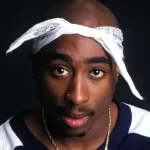
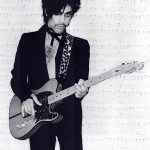
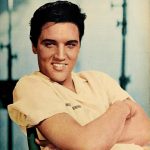

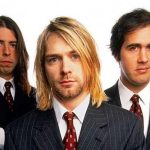

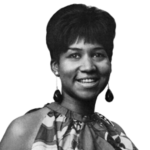
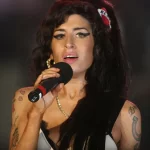




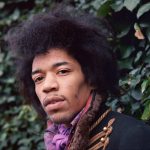

Leave a Reply